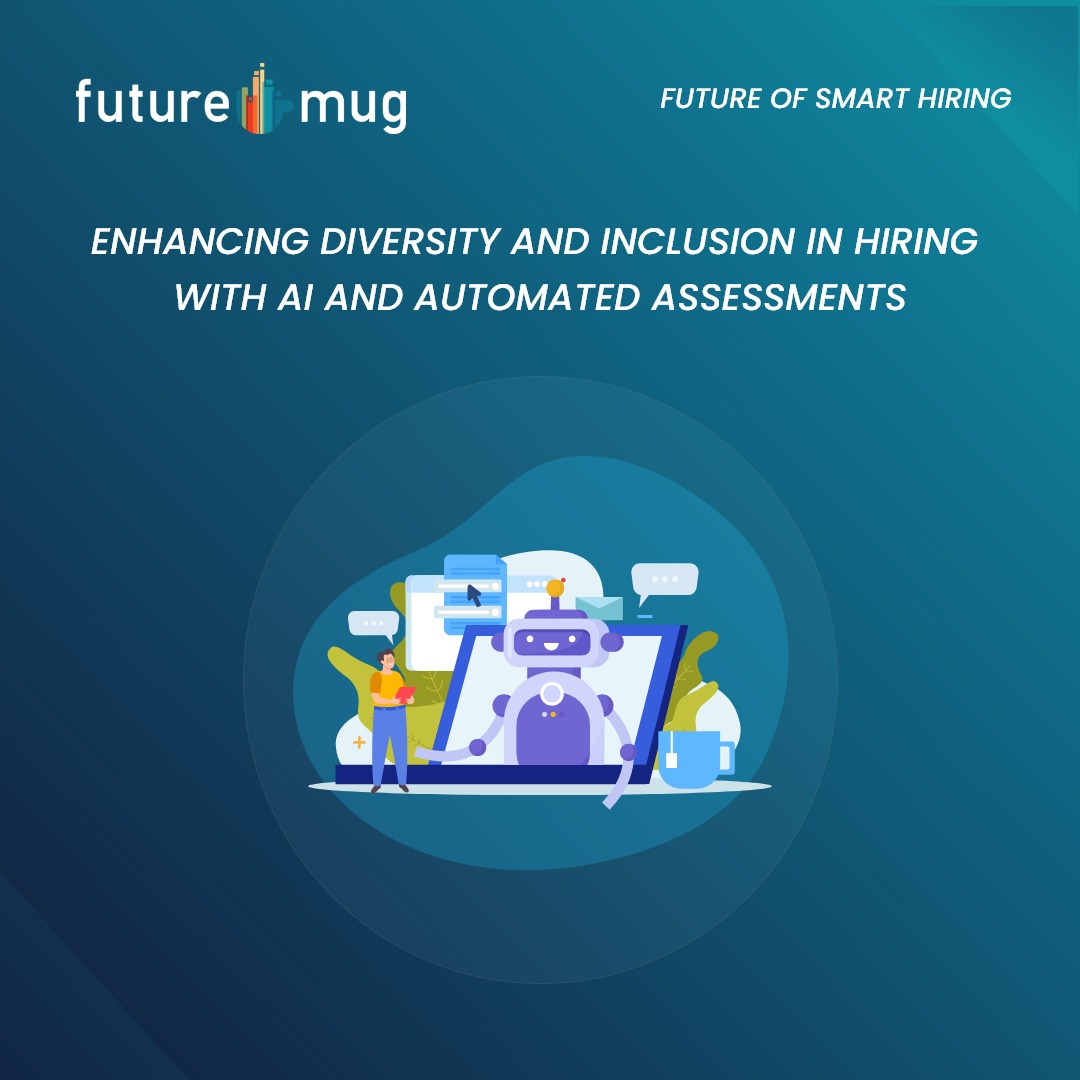
Enhancing Diversity and Inclusion in Hiring with AI and Automated Assessments

Building a diverse and inclusive workforce
Every company aspires to have a dynamic, inclusive staff that can handle a wide range of abilities. This objective might not be reached by using standard hiring practices, which may include out-of-date tools and methods of assessment as well as built-in prejudices. What then is the remedy? How can companies make sure that candidates are hired just based on their suitability and merit?
The answer lies in AI. Combined with automated assessments and AI-powered recruitment tools and platforms, organizations can now access, assess, and make data-driven decision making to build a diverse and inclusive workforce.
How can AI and automation in hiring help combat biases

Anonymity: By eliminating fields such as name, gender, photo, address, and other personal information from applications, artificial intelligence (AI) enables the elimination of both conscious and unconscious prejudice. Therefore, each applicant will only be evaluated on the basis of his abilities, experiences, and skills.
Objectiveness: AI enables fair hiring decisions by creating, delivering, and assessing exams and evaluations in an impartial way. AI will set the standard for objective evaluations, from coding exams to language competency exams and everything in between.
Inclusivity: When creating a job description, the use of particular words or phrases may convey the idea that only a particular class of applicants is qualified for the position. By creating a more inclusive job description with AI, you can make sure that a wider pool of applicants is drawn to the position.
Consistency: AI enables the rapid evaluation of a huge number of candidates. Therefore, organizations can eliminate the need to use many interviewers for the same position and the unintentional biases they introduce. Organizations are now able to hire people consistently and fairly because to the automation of exams, assessments, and evaluations.
Depth: AI is able to analyse interview responses based on a variety of additional metrics, including content, tone, and language, in addition to test results. Thus, decision makers have access to a vast amount of detailed information because of artificial intelligence.
Diversity: AI-powered recruiting technologies can reach larger and more underutilized talent pools, ensuring that hiring businesses have access to a more varied and larger pool of candidates. This is a great approach to support diversity in the workplace.
Real-life success stories
We can find many real-life examples of companies relying on AI for greater diversity and inclusion in their workforce. One such example is that of the consumer goods giant Unilever using artificial intelligence to enhance gender and ethnic diversity in their work force. You can red all about it here.
IBM is another company that had leveraged the power of AI to draft more inclusive job descriptions, helping to hire a larger and more diverse talent pool. Refer the following link to read about this success story.
https://www.ibm.com/downloads/cas/A5YLEPBR
The story of futuremug
We have our own success story on how we have empowered organizations to source, assess, interview, and automate their recruiting workflow. Our clients have benefitted from a more streamlined interview and assessment process, as well as an in-depth candidate evaluation to make data-driven recruitment decision making.
Integration of AI and automation in our products and services have made it more robust, customizable and efficient.
Read more about the role of AI in assessment platforms in our blog here.
As more advanced technologies become available, companies can leverage their benefits to drive innovation and enjoy greater success for an extended period of time. However, these technologies should only complement the selection process and should not completely replace the value added by human intervention.
Read our following blog to learn about the best practices while using online assessments.